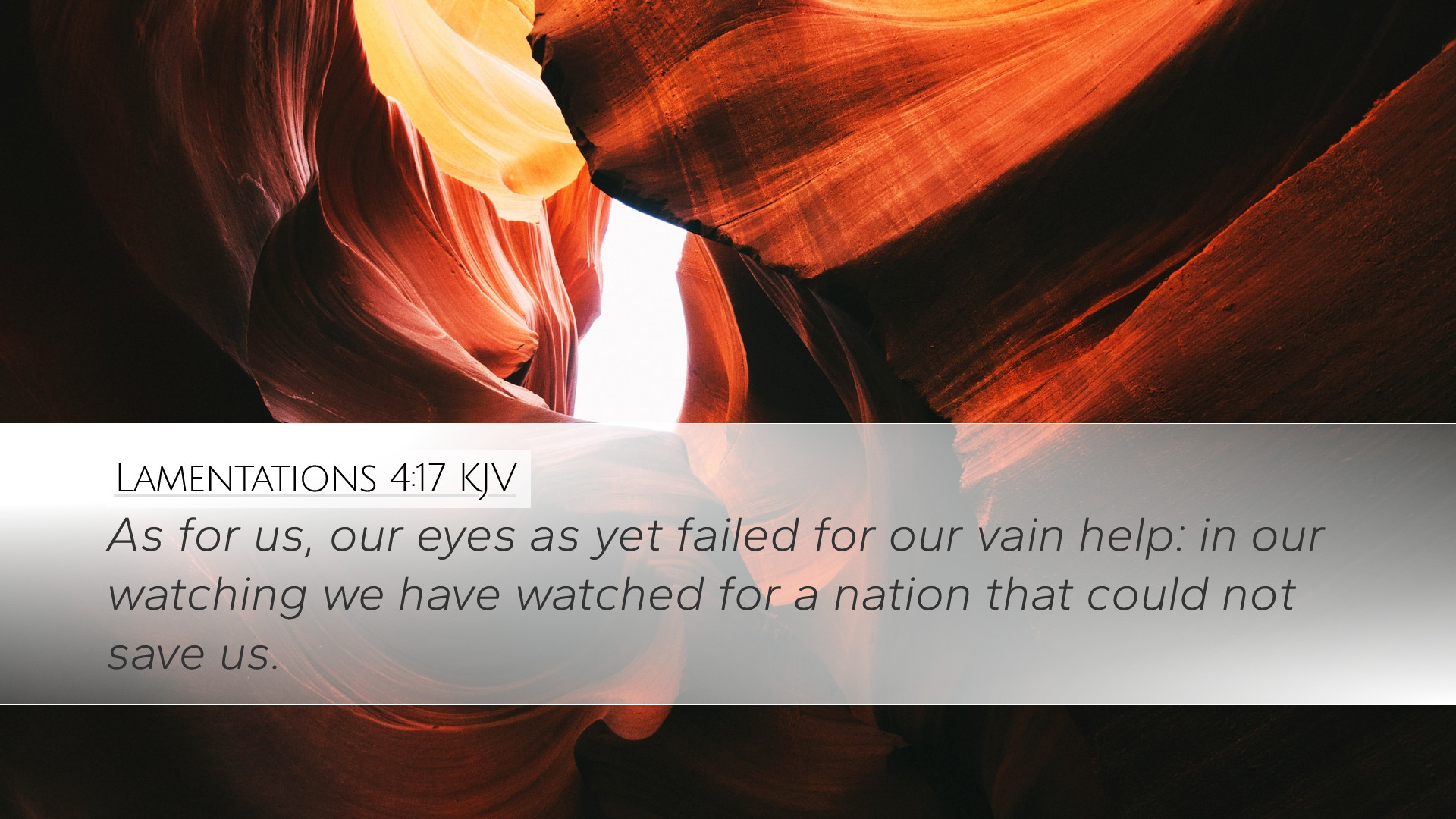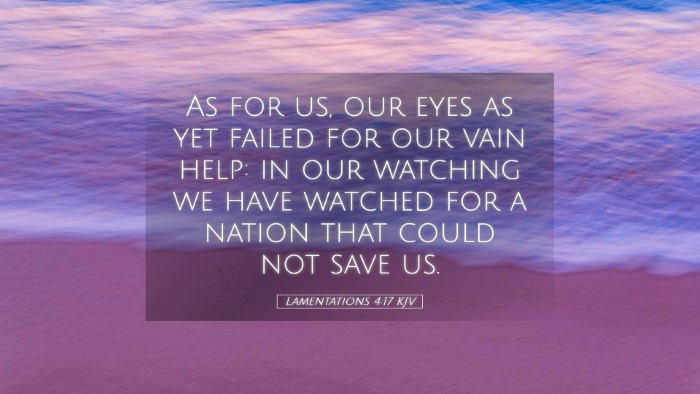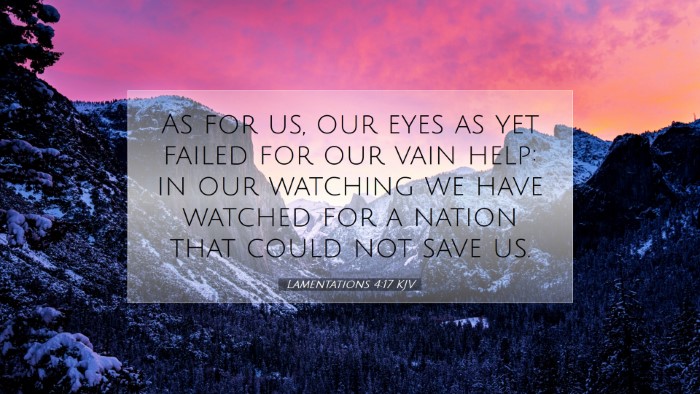Lamentations 4:17 Commentary
Verse Text: "As for us, our eyes as yet failed for our vain help: in our watching we have watched for a nation that could not save us."
Overview
This verse from Lamentations reflects the profound despair and hopelessness experienced by the people of Judah during the siege of Jerusalem. Their reliance on external nations for aid has proven futile, underscoring a common theme throughout Lamentations: the consequences of turning away from God. The text illustrates a profound realization of their vulnerability and abandonment in the face of crisis.
Commentary Insights
Matthew Henry
According to Matthew Henry, this verse highlights the utter disappointment of the Jews as they look for assistance from other nations, which ultimately fails to materialize. He emphasizes that "our vain help" refers to their misplaced trust in alliances that bear no fruit. Henry observes that this futile search for salvation from human sources leads to a deep sense of desperation.
Henry points out that the "watching" signifies a vigilant hope that was in vain—essentially a hope in a savior that would not come. He notes this serves as a lesson about the dangers of relying on worldly power instead of trusting in God, whose promises are the only true source of refuge and salvation.
Albert Barnes
Albert Barnes expands on the themes of hope and despair in this passage. He notes that the phrase "our eyes as yet failed" indicates a prolonged and intense observation, suggesting the people were not idle but actively looking for help. Yet, this active observation only brings pain as they continue to see no relief in sight. Barnes stresses that the focus on "a nation that could not save us" illustrates the folly of seeking salvation through earthly means rather than through reliance on God.
Barnes illustrates that this lamentation is a recognition of human limitations and the ultimate futility of political alliances or military strength in the face of divine judgment. He encourages readers to reflect on the deeper meaning of dependence—where reliance on God opens the door to true salvation compared to the disappointments experienced through earthly expectations.
Adam Clarke
Adam Clarke's commentary takes a slightly different approach by highlighting the emotional weight of the text. He notes the grief encapsulated in this verse, recognizing that it speaks to a lament shared not only by a nation but also on a personal level. Clarke explains that the "watching" here characterizes not just an outward activity but an inward longing and anticipation that is met with despair.
Clarke elucidates that the phrase "could not save us" underscores a theological point about the nature of help. He argues that any hope placed in structures of power is ultimately powerless. He urges contemporary readers, particularly those in ministry, to consider where their congregations might be seeking help outside of God and to redirect that longing back to divine support.
Theological Implications
- The Sovereignty of God: This verse asserts the ultimate authority and sovereignty of God over nations and circumstances. Believers are reminded that God's plans will prevail, regardless of the strategies and alliances crafted by humanity.
- The Nature of True Help: The notion of "vain help" warns against the reliance on earthly powers, illustrating a key biblical truth that true help comes only from God—a point thoroughly echoed in the Psalms (e.g., Psalm 121:1-2).
- Human Vulnerability: The passage candidly addresses human weakness and the futility of trying to control life’s circumstances. This vulnerability speaks to the need for grace and divine intervention in the believer's life.
Practical Applications
- Encouragement for Prayer: In times of despair, individuals are called to turn towards God in prayer rather than seeking out unreliable sources of comfort or aid.
- Dependence on God: Pastors and church leaders should emphasize teaching that fosters a reliance on God's provision, wisdom, and protection as opposed to worldly agencies.
- Community Reflection: Congregations are encouraged to reflect on their expectations and sources of hope. Leaders can facilitate discussions about trust—whom to trust and why, particularly in challenging times.
Conclusion
Lamentations 4:17 encapsulates a poignant moment of recognition, portraying a stark reality where the people of God come face to face with the futility of their efforts to seek salvation through external alliances. Commentators like Matthew Henry, Albert Barnes, and Adam Clarke deliver insights that resonate with themes of dependence, despair, and the call to divine reliance. For pastors, scholars, and theologians, this verse is a powerful reminder to examine the sources from which we derive our strength and hope, ensuring they are rooted firmly in God’s unwavering promise of salvation.


